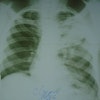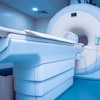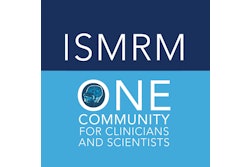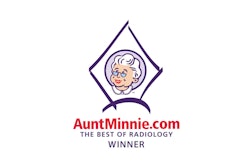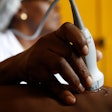While ChatGPT landed two spots in the top 10 most popular articles in 2023, what grabbed the attention of the radiology community the most varied along five other theme lines. Most read? Two stories about brain imaging: One regarding the effects of cannabis use and the other suggesting possible mechanisms behind long COVID.
After brain imaging, medicolegal issues and money ranked highest. UnitedHealthcare, the largest health insurer in the U.S., filed papers to recoup millions from Radiology Partners, a large radiology practice in the U.S. known for putting on business weight by acquiring smaller practices. Nearing arbitration as of August, the case brings up a major contract dispute over unauthorized providers added in network.
In other money and business matters, AuntMinnie.com’s annual SalaryScan showed there is both job security and higher wages for those entering the radiology field at a time otherwise shadowed by inflationary pressure, workforce shortages, and turmoil abroad. We’ve since learned that looking ahead into 2024, 72% of CT sites anticipate that their 2024 CT procedures will increase compared to 2023.
The topic of fraud is a perennial favorite, and our coverage of a case against a radiologist in Pennsylvania known for practicing controversial procedures on Medicare beneficiaries -- and making bank doing it -- took the fifth most popular article spot.
Cancer screenings -- first, a key breast cancer update in May, then rethinking cancer screening priorities overall in August -- rounded out the top 10, along with the 2023 Minnies award nominees.
We make it easy for you to read our hottest stories of the year either over a cup of cocoa by the fireside or poolside. Read more in the snapshots below.
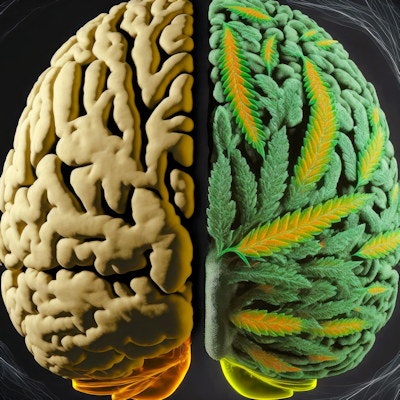
1. ISMRM: MRI detects brain changes in past cannabis users
If you’ve been following cannabis use and cannabis use disorder, you might not be surprised to learn that our most read story was about the heavy use of cannabis and its effect on the brain as detected by MRI. New Zealand researchers reported that heavy cannabis use is associated with structural brain changes such as volumetric differences in subregions of the hippocampus and amygdala.
2. Researchers offer hypothesis for long COVID brain fog
Research tying brain inflammation believed to be triggered by COVID-19 infections to astrocyte function and glutamate homeostasis was the second most read article. In this study, French researchers suggested additional PET imaging with the use of translocator protein radiotracer for observing visual brain patterns and indexing the reactivity of astrocytes, starlike cells that play a key role in central nervous system functions. The research will continue.
3. UnitedHealthcare sues Radiology Partners over billing dispute
While litigation over pass-through billing in UnitedHealthcare (United) versus Radiology Partners moved closer to arbitration as of August, details from the April court filing are worth noting. The complaint centered on a small practice that Radiology Partners acquired in 2014 -- one with a United network contract affording reimbursement rates nearly 600% more than Medicare. Alleging 10 counts overall, United hopes to recoup millions in overpayments. Radiology Partners said the claims were without merit.

4. Radiologists, RTs brought home higher earnings
In September, our SalaryScan survey revealed the average base salary of radiologists increased nearly $1.8% in 2022. CT specialists reported the highest average base salary. Nuclear medicine/PET specialists were paid the least by comparison. A regional analysis of salaries showed U.S. West North Central earned about 23% more than other regions. U.S. Mountain rounded out the bottom. Further, high demand for radiologic technologists drove increases in RT salaries. Revisit the details here. Look for new data in 2024.
5. Radiologist faces $6.1M suit over false claims
Interventional radiologist Dr. James McGuckin of Radnor, PA, made headlines again when he became the target of a new false claims complaint. McGuckin allegedly billed Medicare and the Federal Employees Health Benefits Program for medically unnecessary invasive peripheral artery procedures for a three-year period, to the tune of over 500 claims, and was reimbursed at least $6.5 million.
6. ACR releases updated breast cancer screening recommendation
Announced in early May, an updated breast cancer screening recommendation targeting specific subgroups of women aimed to spur earlier doctor-patient conversations about breast cancer risk, genetics-based risks, and the need for supplemental screening, such as contrast-enhanced mammography. The American College of Radiology (ACR)’s statement underscored the need for early risk assessment by age 25, especially among Black and Ashkenazi Jewish women.
7. ChatGPT passes radiology exam
Also in May, we shared findings from a University of Toronto study that demonstrated “impressive improvement” in ChatGPT in radiology since its public release. At the time, ChatGPT-4 scored 81% on a radiology board-type exam that matched the style, content, and difficulty of Canadian Royal College and American Board of Radiology exams. ChatGPT-3.5 scored 69%. The study established one set of benchmarks; however, our next top 10 story suggests a potentially suitable path forward for ChatGPT.

8. Does ChatGPT have a role in clinical radiology?
George Washington University researchers are not alone in saying that it is important to carefully assess the challenges and ethical considerations before implementing an AI system such as ChatGPT in clinical radiology. They said that ChatGPT might be useful for patients leading up to their radiologic-guided procedures.
9. Breast imaging experts criticize controversial cancer screening study
Claims that cancer screenings don't necessarily extend people’s lives drew ire from cancer screening advocates. Researchers at University of Oslo in Norway calculated the association between several types of cancer screening tests and life days gained. Colorectal cancer screening with sigmoidoscopy showed gains, but other screening test outcomes were unlikely or uncertain, researchers said. The researchers didn’t advocate abandoning cancer screenings, but they suggested “it might be wise to reconsider priorities...”
10. Meet the Minnies 2023 finalists
For those not familiar with the Minnies, awards categories spotlight a Who's Who in radiology, as well as influential programs, events, issues, clinical procedures, new vendors, software, and more. To learn more about the full list of 2023 nominees, click here.


